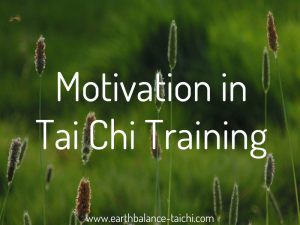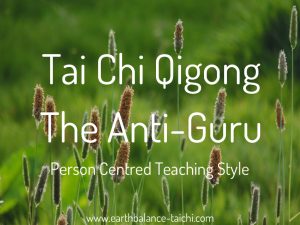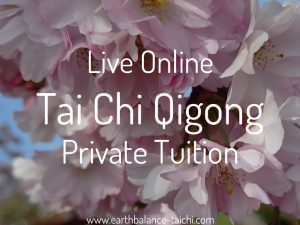
How to Find a Tai Chi Instructor
When starting out as a new Tai Chi student, where do you start with finding a teacher? Read my handy guide for how to find a Tai Chi instructor, and find out important questions to ask.
Who is their teacher?
Ask what lineage an instructor trains under, their background in teaching and check the information out. There are many different schools and styles of Tai Chi and Qigong, some may be suited to you, some may not.
As in all walks of life, the world is full of cowboys. This also applies to Tai Chi and Qigong instructors. In some cases, there are instructors out there who have never studied Tai Chi or Qigong. Sadly, this gives the wrong impression of what authentic Tai Chi and Qigong is to many students. If an instructor is vague about who they study with or not forthcoming with information, you can consider that a red flag. This is called Mc-TaiChi.
- Ask an instructor who their teacher is, who they train with regularly and look up their teachers. All instructors should still be students, there is no end to learning.
- Ask what style of Tai Chi they teach and the background of the style.
- Ask them to explain what makes a Tai Chi movement Tai Chi? (look for an explanation of the principles in everyday language)
- Ask what is Qigong?
- Ask them about their classes, what the content is, what to expect as a new learner and so on.
- Ask about their background and their teaching experience.
- Ask about their school philosophy and ethos.
- Ask if they have a criminal records check (DBS).
- Ask if they have insurance to teach.
- Ask if you can attend one class to try it out.
- Ask if they have a first aid certificate.
What style of Tai Chi do they teach?
Finding out what a class may entail will help you make an informed decision, as not all Tai Chi styles are the same. Tai Chi generally refers to Tai Chi as a health exercise. Tai Chi Chuan generally refers to Tai Chi as a martial art.
For me as a Chen Tai Chi instructor, I teach beginners the Tai Chi form with a focus on mind and body health. Yet the students are learning the basic martial applications to give their movements purpose and to help them remember the shapes. So in effect they are studying Tai Chi Chuan. There is no separation between health and martial in Chen style. Both roads lead to the same point as the movements are the same. It’s just a different perspective for the journey.
Chen Tai Chi is the original contemporary form of Tai Chi, dating back to circa 300 years ago. All styles of traditional Tai Chi are a derivative of Chen style. Chen is a family name like Smith. Yang Tai Chi is the first style to have been adapted from Chen and is the most widespread Tai Chi style practised in the world today. Other traditional (purist) styles of Tai Chi are Sun, Wu, Wu Hao. The basic theory of the traditional styles have the same core foundations taught and expressed in different ways. There are other more modern non-traditional Tai Chi styles like Chen Man-Ch'ing which offer the same core foundations of movement.
Many new styles of Tai Chi have been simplified for a Western audience. These classes teach Tai Chi ‘like’ movements that do not pass on the core principles of sophisticated integrated body movement. These styles are like a dance routine and will not train the body in the same way as the traditional styles. This reduces down the expected health benefits to the same level as a non-impact slow moving exercise class at your local gym. There is definite value in these types of movement, as movement is vital to health. However, they are not an authentic traditional Tai Chi practice.
Similar practices
Other martial arts similar to Tai Chi are Bagua Zhang and Xing Yi Quan. Tai Chi, Bagua and Xing Yi are considered internal martial arts (mind, body and spirit integration). Known as soft martial arts whereby training is practised slowly at first, with a relaxed state in both the mind and body, without the use of physical force. All three practices use spiralling movements in the body.
External martial arts are karate, Shaolin, kung fu etc. These are known as the hard martial arts. Where training is practised fast with explosive movements from the beginning, using muscular strength and physical force. That said, when studying the internal arts for a long time you will gain an understanding of external martial arts. And vice versa, when studying external martial arts for a long time, you will gain an understanding of the internal aspects.
Wushu is derived from Tai Chi and other Chinese martial arts. It is a contemporary Chinese martial art combining martial application with athletic performance for sport and competitions.
What Qigong routines do they teach?
Consider what type of exercise are you looking for? Qigong routines can range from relaxing to dynamic whole body movements. Finding the right routine for your needs is important. An example would be to avoid the hard style Qigong routines if you have just had spine surgery. Each Qigong routine will be named e.g. The 5 Animals, the 8 Pieces of Brocade, Qigong for Women etc. Each Qigong routine will originate from master or lineage. You can research online about each routine to see if it is something you would enjoy participating in. Youtube is a great resource for this.
- What do you want to achieve?
- Ask yourself this question, what do you expect from a class?
- And do you have any goals?
Write a list to help understand yourself better. It may be you are looking to improve your physical health, mental health, recover from injury, gain flexibility, get out of the house for an hour, be more social or it may be a long time since you have exercised. Discuss your expectations and goals with any new instructor. Your instructor will advise on the best suited class for your needs. Your list of expectations and goals will also help you when you research the different classes and teachers in your area.
How to find a Tai Chi instructor - Not all instructors are the same.
Not everyone can teach Tai Chi and Qigong effectively. It requires clear and concise communication that can adapt to different learning styles and group dynamics. Some teachers may be of a high level and have a skilled Tai Chi performance, yet they are unable to deliver lessons and engage each student in an effective and flexible way. It is important they can pass on the principles of body mechanics in a way that is appropriate for you as a student, considering your level of learning, age, health restrictions and so on.
Passion and enthusiasm of the movement arts are vital when teaching as you will be carried along by your instructor’s vitality. Mutual respect is a very important part of teaching and learning. Instructors are not gurus or superior. Avoid putting an instructor on a pedestal. They are real people, who walk the same ebb and flow in life as you. An instructor is there to guide you through the practice as an equal, teaching and learning from one person to another. It is a shared experience. They have merely studied for a long time in a subject that you have not. Tai Chi and Qigong movements are skills that anyone can learn with the right amount of tuition and training.
An instructor should act with kindness, modesty, grace and non-judgement. Your teacher’s role is to create a sense of community in a group class. To provide a safe and caring space for each student to feel comfortable within. This is especially relevant when you consider the spiritual, mindfulness and meditation aspects of training Tai Chi and Qigong. When opening yourself up to this area of practice, it can become quite a vulnerable experience. Trust your instincts and meet the instructor in person before you sign up for a class.
One of my favourite quotes: "The sage teaches people to return to their childlike hearts".
Look Out For
• Membership of the Tai Chi Union UK.
• Criminal record check known as DBS.
• Professional insurance.
Where to Find an Instructor
• You can find out more about me as an instructor here. You can find out about the classes over in my webstore.
• In the UK visit www.taichiunion.com
How to Find a Tai Chi Instructor
About instructor Nicola at Earth Balance Tai Chi
Nicola provides online private and group tuition in Chen style Tai Chi, qigong for health and Taoist meditation. Whether you are looking for traditional form training, or to dip in and out of the practices, there are lessons to suit you. Learn privately in 1-2-1 live stream classes or via distance learning videos, or learn via group live stream.














